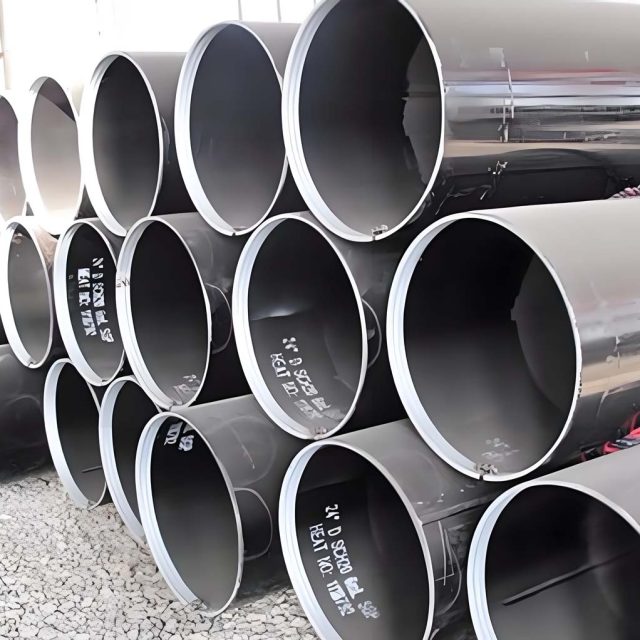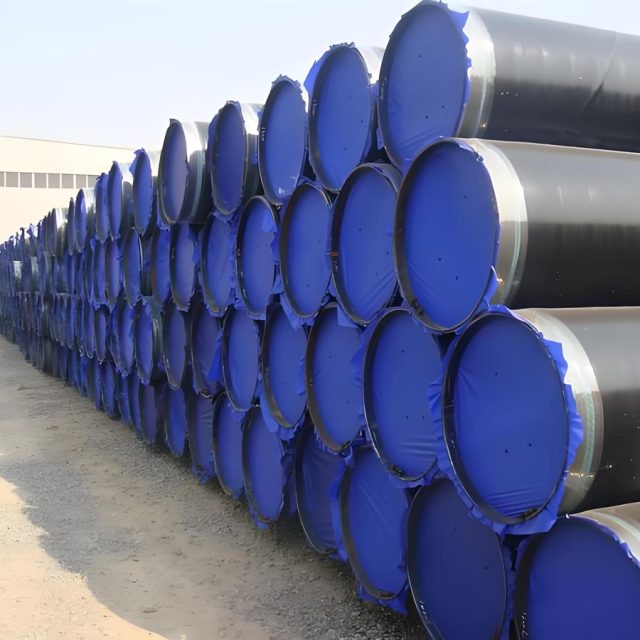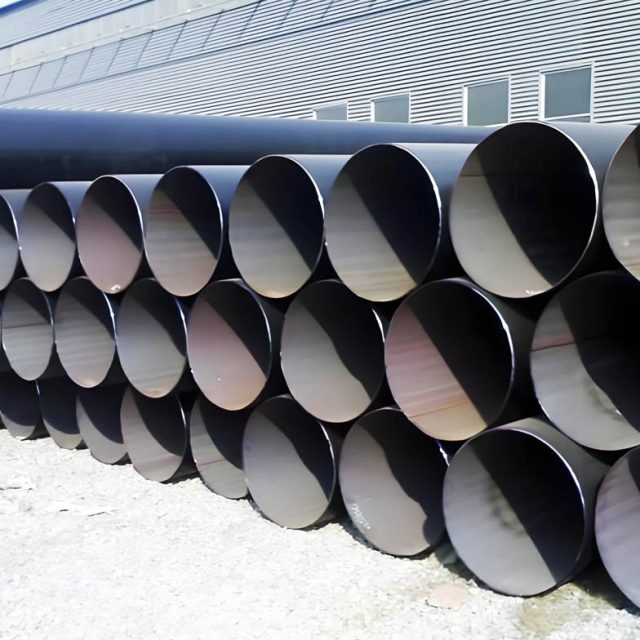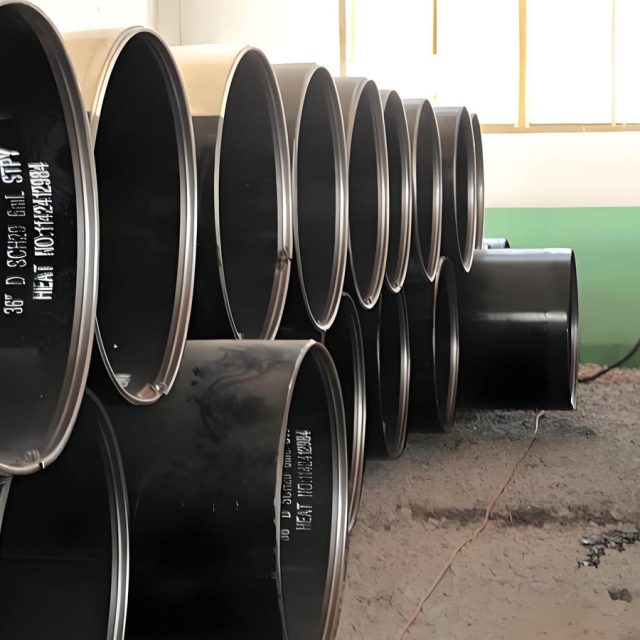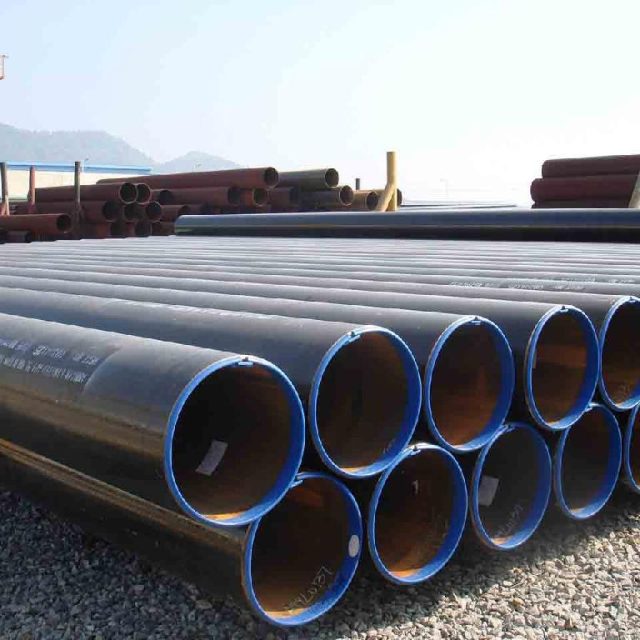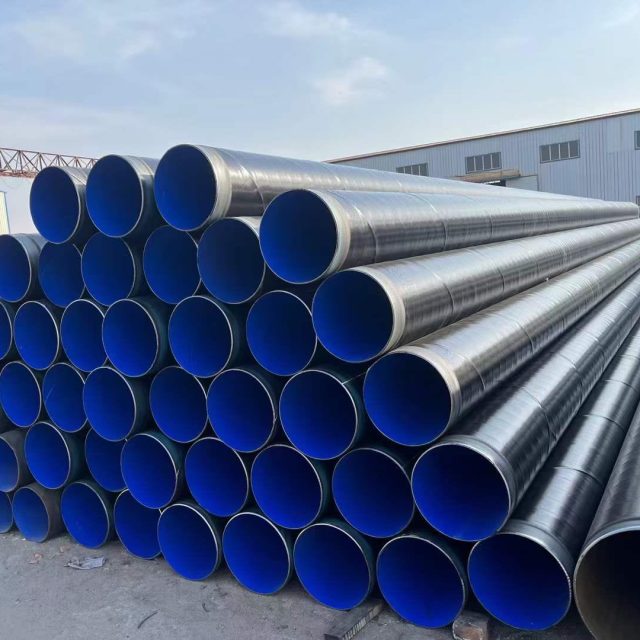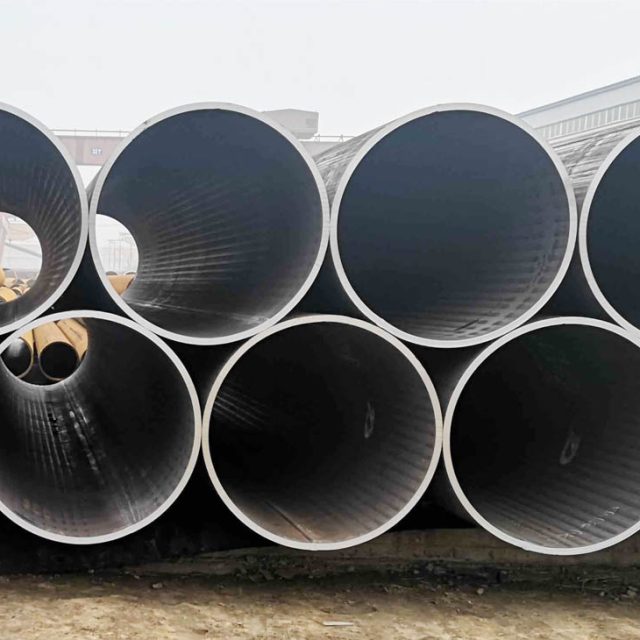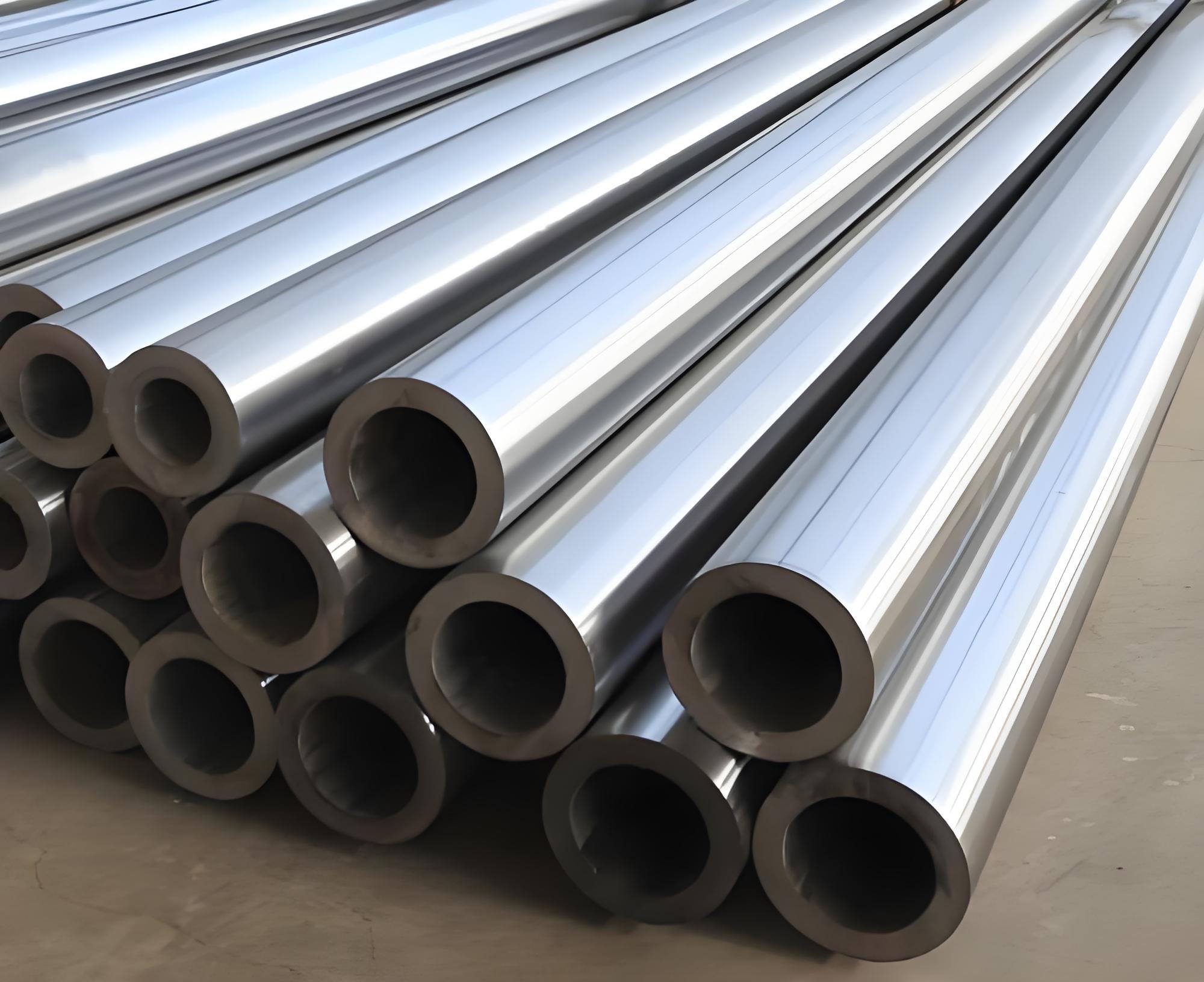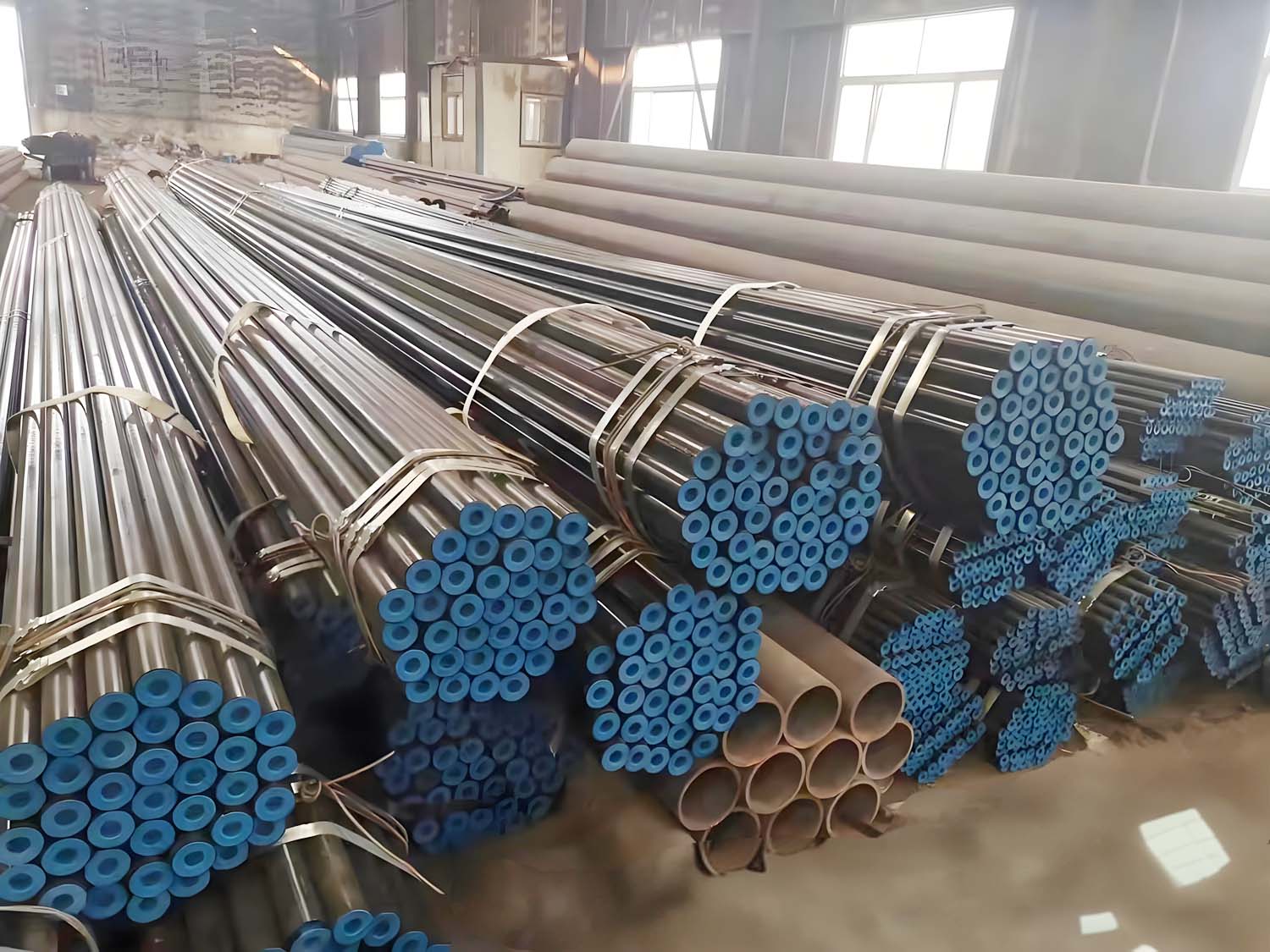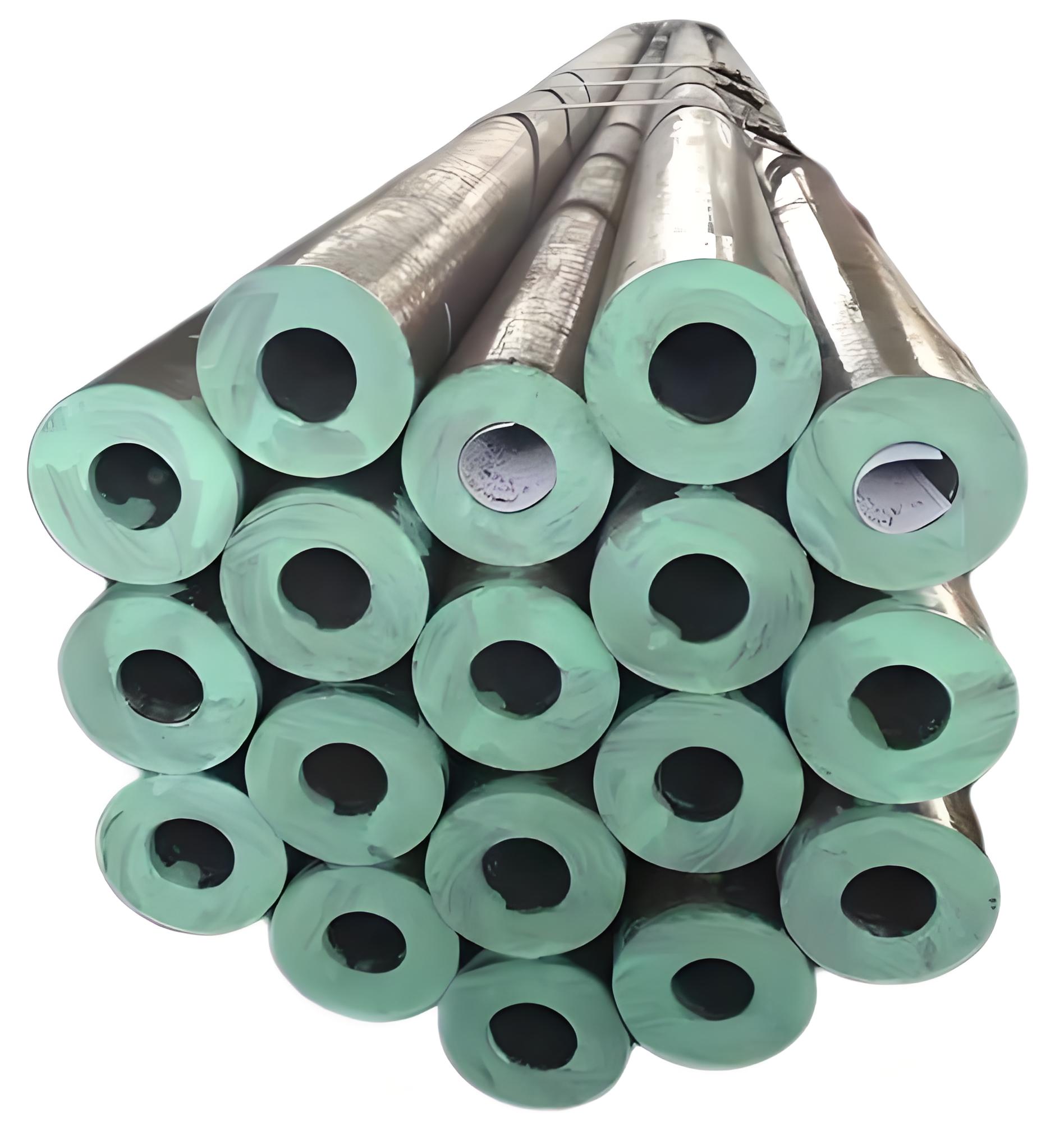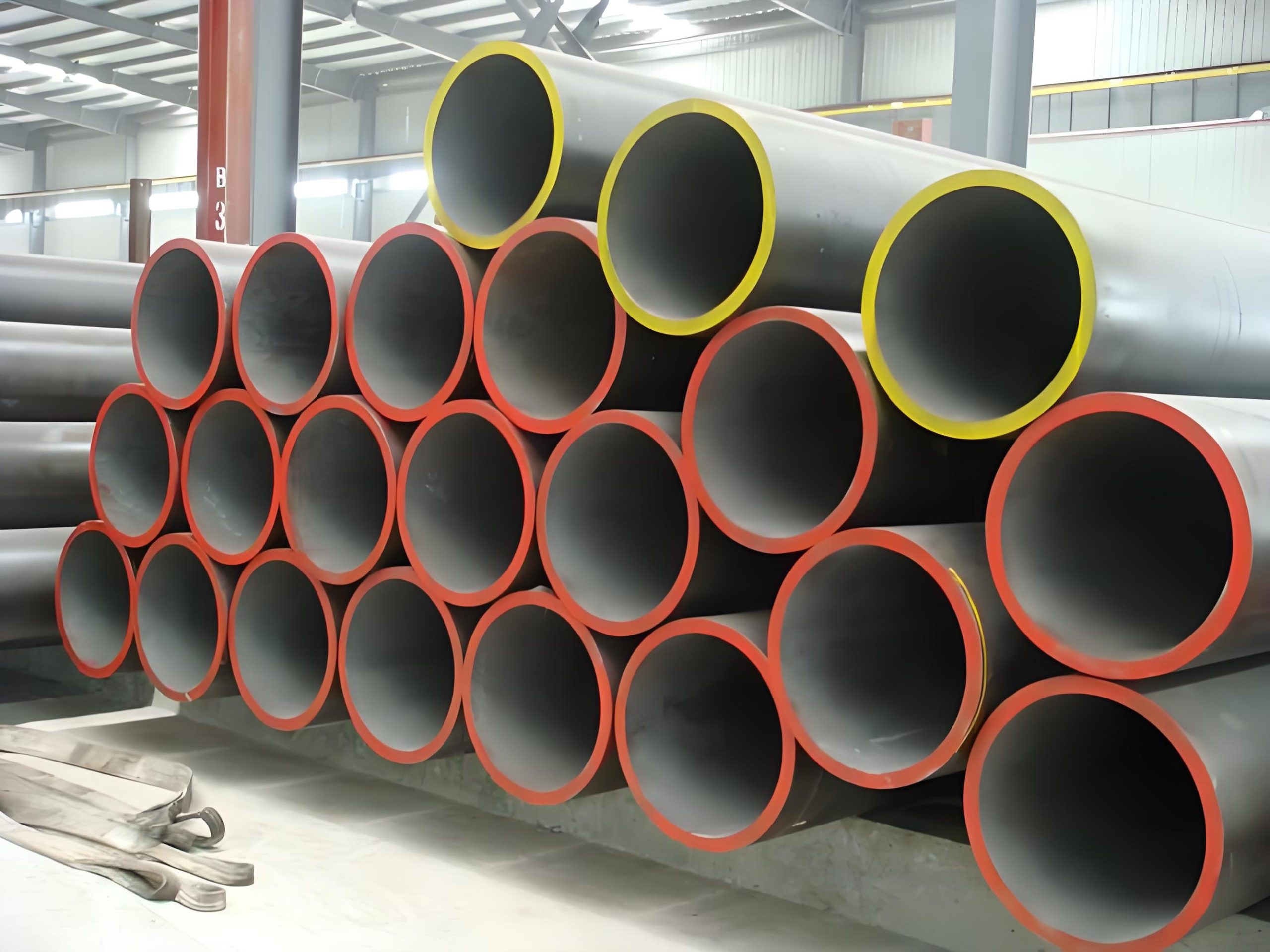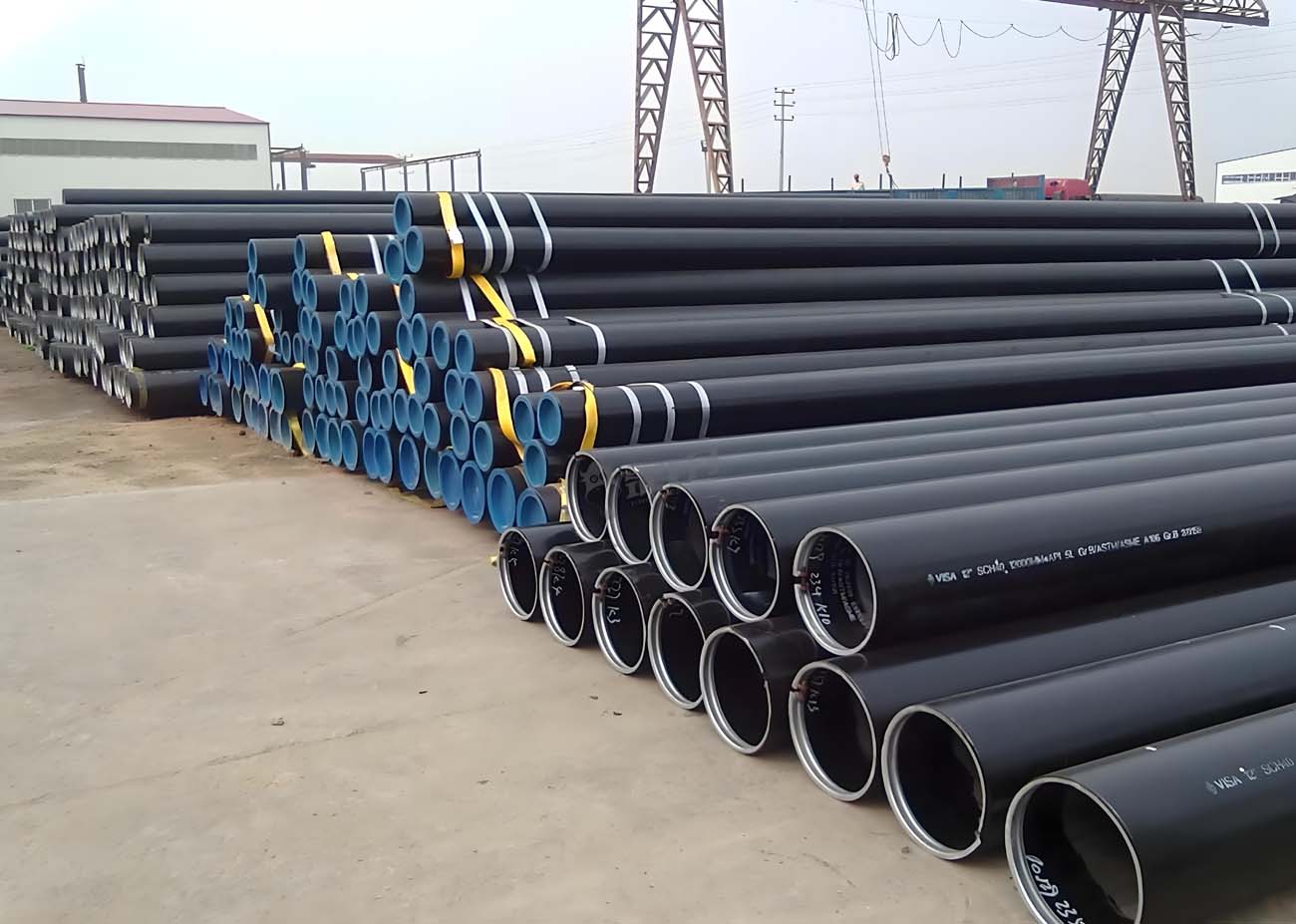LSAW steel pipes
Longitudinally Submerged Arc Welding (LSAW) Pipes
LSAW (Longitudinal Submerged Arc Welded) steel pipes are a type of welded pipe widely used in the oil and gas industry, as well as in structural applications. These pipes are known for their high strength, large diameter, and ability to withstand high pressures. They are manufactured using a process that involves welding the longitudinal seam, making them ideal for transporting fluids and gases over long distances.
LSAW pipes, specifically longitudinally submerged arc welded pipes, are categorized based on their forming methods into UOE, RBE, and JCOE types. These pipes are essential in various industries due to their robust manufacturing processes and high-quality standards.
Longitudinal High-Frequency Welded Steel Pipe
These pipes are known for their relatively simple manufacturing process and speedy continuous production, making them ideal for civil construction, petrochemical, light industry, and other sectors. They are commonly used to transport low-pressure fluids or are fabricated into various engineering components and light industrial products.
UOE LSAW Pipes
The UOE mill is recognized for its advanced technology and processes, ensuring high production efficiency, stable product quality, and comprehensive inspection equipment.
Production Line
The UOE mill utilizes U & O forming. The formed pipes undergo internal welding through five stations with three wires each and external welding through four stations with three wires each. Depending on customer requirements, the welded pipe can be expanded either mechanically or hydrostatically to enhance dimensional accuracy and eliminate residual stress.
Specifications
- Outside Diameter: Φ508mm – 1118mm (20″ – 44″)
- Wall Thickness: 6.0mm – 25.4mm (1/4″ – 1″)
- Quality Standards: API, DNV, ISO, DEP, EN, ASTM, DIN, BS, JIS, GB, CSA
- Length: 9m – 12.3m (30′ – 40′)
- Grades: API 5L A-X90, GB/T9711 L190-L625
JCOE LSAW Pipes (Press Bending)
This JCOE production line is one of China’s major facilities for manufacturing large-diameter LSAW pipes. It employs a progressive bending process that ensures evenly distributed forming stress, high dimensional uniformity, infinite size variations, a wide product range, and high flexibility.
Specifications
- Outside Diameter: Φ406mm – 1626mm (16″ – 64″)
- Wall Thickness: 6.0mm – 75mm (1/4″ – 3″)
- Quality Standards: API, DNV, ISO, DEP, EN, ASTM, DIN, BS, JIS, GB, CSA
- Length: 3m – 12.5m (10′ – 41′)
- Grades: API 5L A-X100, GB/T9711 L190-L690
JCOE LSAW Pipes (Roll Bending)
This production line is noted for being the first large-diameter LSAW pipe production line in China. It uses a continuous axis contorting J-C-O forming process characterized by high forming accuracy and efficiency, as well as balanced distribution of forming stress. The mill is versatile, capable of producing pipes in any size within its production range.
Specifications
- Outside Diameter: Φ406mm – 1829mm (16″ – 72″)
- Wall Thickness: 6.0mm – 30mm (1/4″ – 11/6″)
- Quality Standards: API, DNV, ISO, DEP, EN, ASTM, DIN, BS, JIS, GB, CSA
- Length: 3m – 12.2m (10′ – 40′)
- Grades: API 5L A-X80, GB/T9711 L190-L555
Manufacturing Process
The LSAW pipe manufacturing process involves several key steps:
- Plate Preparation:
- Edge Milling: The edges of the steel plate are milled to ensure a smooth and uniform edge for welding.
- Edge Beveling: The edges are beveled to create a V-shaped groove, which facilitates the welding process.
- Forming:
- Pre-Bending: The plate is pre-bent to approximate the final shape of the pipe.
- U-ing and O-ing: The plate is first bent into a U shape and then into an O shape using a U-O press or a J-C-O process.
- Welding:
- Internal Welding: The inside seam is welded using a submerged arc welding (SAW) process.
- External Welding: The outside seam is also welded using the SAW process, ensuring a strong and consistent weld.
- Expansion:
- The welded pipe is expanded using a mechanical expander to achieve the desired diameter and roundness.
- Heat Treatment:
- The pipe undergoes heat treatment to relieve residual stresses and improve mechanical properties.
- Inspection and Testing:
- Non-Destructive Testing: Ultrasonic testing, radiographic testing, and hydrostatic testing are performed to detect any defects and ensure the integrity of the pipe.
- Visual and Dimensional Inspection: The pipe is inspected for surface defects, and its dimensions are checked to ensure compliance with specifications.
Specifications and Standards
LSAW pipes are manufactured to meet various international standards, ensuring their quality and suitability for different applications. Some common standards include:
- API 5L: Specification for line pipe used in the oil and gas industry.
- ASTM A252: Specification for welded and seamless steel pipe piles.
- ASTM A53: Specification for pipe, steel, black and hot-dipped, zinc-coated, welded and seamless.
- EN 10219: Specification for cold-formed welded structural hollow sections of non-alloy and fine-grain steels.
LSAW Pipes Production Range
LSAW (Longitudinally Submerged Arc Welded) pipes use steel plates as raw material. These plates are shaped into pipes using a mold or forming machine, followed by double-sided submerged arc welding and flaring.
- Length: 8-12.15m
- Material: API 5L Gr.B-X80
- Standard: API Spec. 5L; GB9711.1-97
Range of LSAW Pipes Applied in Construction
Range of Roller Pipes
- Outer Diameter: Ф1200-3800mm
- Wall Thickness: 12-120mm
- Unit Length (Max): 3.2m
Note: The specifications listed are available for Q345 grade. Non-standard dimension pipes can be produced to customer specifications.
Chemical Composition & Mechanical Properties
| Standard | Grade | Chemical Composition (max)% | Mechanical Properties (min) |
|---|---|---|---|
| C | Mn | ||
| GB/T700-2006 | A | 0.22 | 1.4 |
| B | 0.2 | 1.4 | |
| C | 0.17 | 1.4 | |
| D | 0.17 | 1.4 | |
| GB/T1591-2009 | A | 0.2 | 1.7 |
| B | 0.2 | 1.7 | |
| C | 0.2 | 1.7 | |
| BS EN10025 | S235JR | 0.17 | 1.4 |
| S275JR | 0.21 | 1.5 | |
| S355JR | 0.24 | 1.6 | |
| DIN 17100 | ST37-2 | 0.2 | – |
| ST44-2 | 0.21 | – | |
| ST52-3 | 0.2 | 1.6 | |
| JIS G3101 | SS400 | – | – |
| SS490 | – | – | |
| API 5L PSL1 | A | 0.22 | 0.9 |
| B | 0.26 | 1.2 | |
| X42 | 0.26 | 1.3 | |
| X46 | 0.26 | 1. |
| Standard | Grade | Chemical Composition (max)% | Mechanical Properties (min) |
|---|---|---|---|
| C | Mn | ||
| API 5L PSL1 | X46 | 0.26 | 1.4 |
| X52 | 0.26 | 1.4 | |
| X56 | 0.26 | 1.1 | |
| X60 | 0.26 | 1.4 | |
| X65 | 0.26 | 1.45 | |
| X70 | 0.26 | 1.65 |
Range of Roller Pipes
| Number | Technical Parameter | Unit | HQW11s-120X3200 |
|---|---|---|---|
| 1 | Material Yield Limit | Mpa | 245 / 345 / 345 |
| 2 | Wall Thickness | mm | 120 / 100 / 110 |
| 3 | Maximum Pre-Bending Thickness | mm | 110 / 90 / 100 |
| 4 | Maximum Width of Steel Plate | mm | 3200 |
| 5 | Minimum Diameter of Fully Loaded Rolling Steel Plate | mm | 2500 / 1600 / 1600 |
Remarks
- Non-standard dimensions pipes can be produced to customer specifications.
- The provided technical parameters and chemical compositions ensure the suitability of LSAW pipes for high-pressure and structural applications, offering flexibility in size and material grade based on project requirements.
Applications
LSAW pipes are used in a wide range of applications due to their high strength, durability, and ability to withstand high pressures. Common applications include:
- Oil and Gas Pipelines: Transporting crude oil, natural gas, and refined petroleum products.
- Water Pipelines: Transporting potable water and wastewater.
- Structural Applications: Construction of bridges, buildings, and other infrastructure projects.
- Piling: Used as foundation piles in construction projects.
- Offshore and Onshore Projects: Suitable for use in harsh environments, including offshore platforms and onshore facilities.
Advantages of LSAW Pipes
- High Strength: LSAW pipes have high tensile and yield strength, making them suitable for high-pressure applications.
- Large Diameter: Capable of producing pipes with large diameters, which are ideal for transporting large volumes of fluids and gases.
- Uniform Wall Thickness: The manufacturing process ensures uniform wall thickness, improving the pipe’s overall strength and durability.
- Good Weld Quality: The submerged arc welding process produces high-quality welds with deep penetration and minimal defects.
- Versatility: Suitable for a wide range of applications, including oil and gas transportation, water pipelines, and structural projects.
Installation and Maintenance Considerations
Installation
- Handling and Storage: LSAW pipes should be handled and stored carefully to prevent damage. They should be stored in a dry environment and protected from corrosion.
- Welding and Joining: Proper welding techniques should be used to ensure strong and leak-free joints. Pre-heating and post-weld heat treatment may be necessary depending on the material and application.
- Alignment and Support: Ensure proper alignment and support during installation to prevent bending or sagging.
Maintenance
- Regular Inspections: Conduct regular inspections to detect signs of wear, corrosion, and other potential issues. Use non-destructive testing methods such as ultrasonic testing and radiographic testing.
- Corrosion Protection: Apply and maintain protective coatings to prevent corrosion. Use cathodic protection where applicable.
- Monitoring and Testing: Implement a monitoring system to continually assess operating conditions, including pressure, temperature, and flow rates. Schedule periodic testing to ensure the integrity and safety of the piping system.

